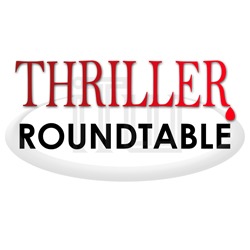

October 10 – 16: “Where do you get your story ideas?”
 Where do you get your story ideas? Are you a ripped from the headlines type? Do your story ideas actually start with character? Do they reflect your life/interests? Are they more intuitive? AND, how do you know when they’re good?
Where do you get your story ideas? Are you a ripped from the headlines type? Do your story ideas actually start with character? Do they reflect your life/interests? Are they more intuitive? AND, how do you know when they’re good?
Join ITW Members C. C. Harrison, Miranda Parker, Todd Ritter, Ed Kovacs, Yvonne Anderson and Allison Brennan for what’s sure to be a thriller!
~~~~~~~~~~~~~~~~
C. C. Harrison’s award-winning books include, THE CHARMSTONE, a mystery set on the Navajo Indian Reservation, that was called “An important book!” by Tony Hillerman. Next came RUNNING FROM STRANGERS, and SAGE CANE’S HOUSE OF GRACE AND FAVOR written as Christy Hubbard), which was honored at the Aspen Institute as a finalist in the 2010 Colorado Book Award. PICTURE OF LIES will be released October 2011. She is currently working on CEMETERY TREES, a Michigan mystery.
Miranda Parker is the author of A Good Excuse to Be Bad, Book 1 of the Angel Crawford Bounty Hunter Series. This journalist/book critic has written over fifty magazine articles. She began writing fiction in 2005 after taking a writing workshop taught by Chuck Palanuik. Now Parker writes romcom suspense for Kensington Books. She resides near a Georgia horse ranch and her daughter’s Girl Scout Troop.
Todd Ritter’s first mystery, DEATH NOTICE was published in 2010 by St. Martin’s/Minotaur. The follow-up, BAD MOON, will be released next month. He is a journalist and editor based in New Jersey but born and raised in Pennsylvania. He can frequently be found posting YouTube videos of baby animals on Twitter.
Ed Kovacs has worked and traveled all over the world as a private security contractor, journalist, and screenwriter. His novel STORM DAMAGE will be published by Minotaur in December, 2011. Eight screenplays he has written have been produced under various pen names. He splits his time between his home in Southeast Asia and his aircraft hangar home at a Southern California airport.
Allison Brennan is the New York Times bestselling author of seventeen romantic thrillers, including Kiss Me, Kill Me; Love Me to Death; Sudden Death and Killing Fear. A five-time RITA finalist and Daphne du Maurier Award winner, Brennan enjoys spending her free time reading, playing games, watching high school sports, and researching her novels. A member of Romance Writers of America, Mystery Writers of America, and International Thriller Writers, Allison Brennan lives in Northern California with her husband, Dan, and their five children. The third book in the Lucy Kincaid series will be out in November.
Yvonne Anderson’s first novel, The Story in the Stars (Risen Books), debuted in June 2011. She is contest administrator for the blog Novel Rocket, named to Writer’s Digest’s list of 101 Best Websites for Writers in 2008, 2010 and 2011. A member of American Christian Fiction Writers, The Lost Genre Guild, and International Thriller Writers, Inc., she works as a Virtual Assistant but spends most of her time on the planet Gannah, researching her stories.
- LAST GIRL MISSING with K.L. Murphy - July 25, 2024
- CHILD OF DUST with Yigal Zur - July 25, 2024
- THE RAVENWOOD CONSPIRACY with Michael Siverling - July 19, 2024
